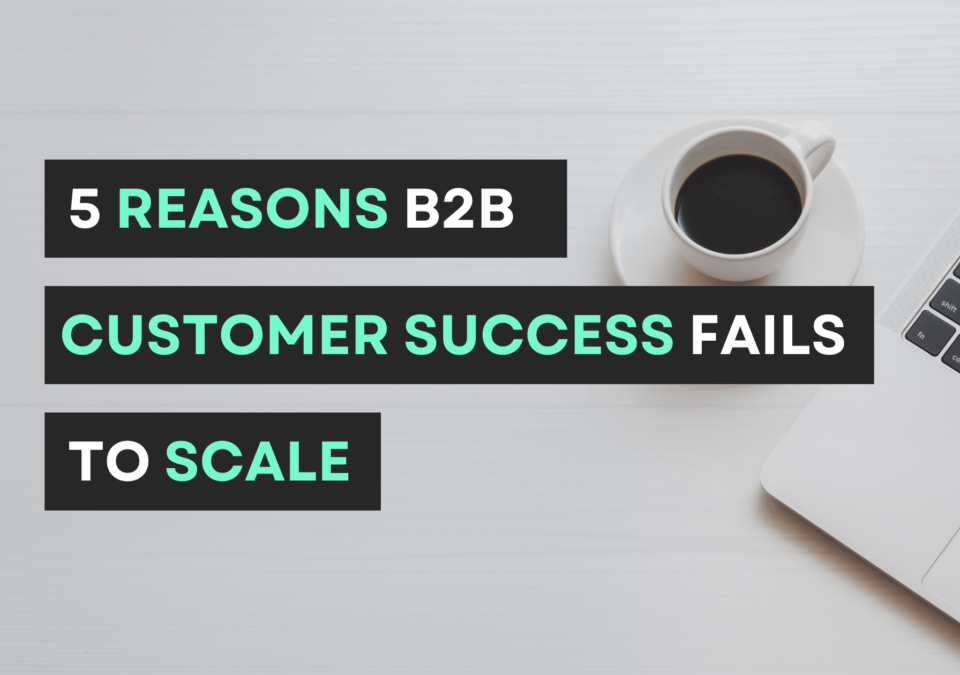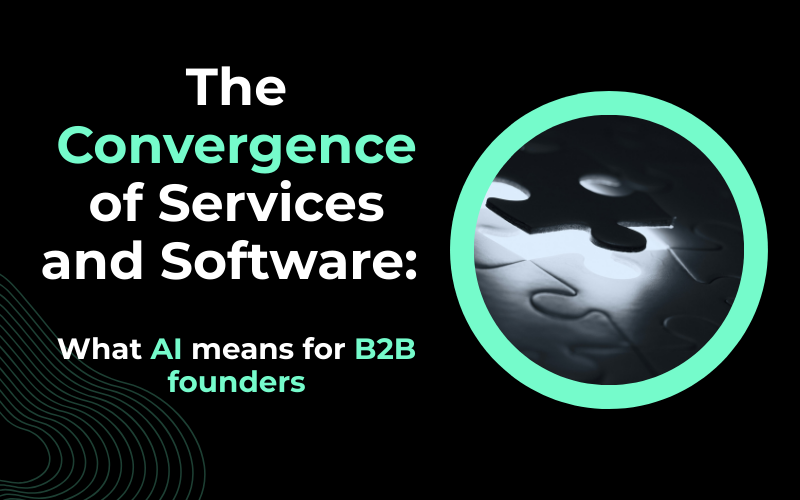Scaling Customer Success (CS) in B2B should be a growth driver, yet many businesses struggle to make it work. When done right, CS boosts retention, drives expansion, and turns customers into brand ambassadors.
In this article, we’ll explore the 5 key reasons why Customer Success often fails to scale effectively, based on our experience working with hundreds of B2B companies. We’ll also share practical solutions to transform your CS function from a reactive support team into a scalable growth engine.
1. Reactive, Not Proactive
Too many Customer Success teams operate in firefighting mode, stepping in only when problems arise. This approach might work in the early days, but as the customer base grows, it’s unsustainable. Scaling requires predictive insights, automated engagement, and a clear plan for proactively driving customer value. Without this, CS teams get overwhelmed, and customer experience suffers.
2. Misalignment with Sales and Marketing
Sales lands the deal, but if Customer Success isn’t aligned, things fall apart post-sale. If expectations set during the sales process don’t match what CS can deliver, customers feel misled and disengaged. The solution? Tighter collaboration between Sales, Marketing, and CS, with a shared definition of success and clear handover processes.
3. Too Many Manual Processes
If your CS team is buried in spreadsheets, chasing data, and manually tracking customer health, you’ve already lost scalability. Automation, playbooks, and tech-driven insights are essential. A strong CS tech stack (CRM, customer health scoring, automated workflows) allows teams to manage more customers without sacrificing quality.
4. Failure to Prove Value to Customers
If customers don’t see measurable results, they won’t stay. Many CS teams struggle to demonstrate ROI effectively, relying on vague engagement metrics rather than tangible business impact. To scale, CS must shift towards value-based engagement, helping customers see clear, data-backed results that justify renewals and expansions.
5. Underinvestment in CS Growth
Customer Success is often seen as a cost centre rather than a revenue driver, leading to underfunding and understaffing. Without investment in team growth, training, and strategic leadership, CS remains stuck in a reactive, tactical role instead of becoming a force for scalable growth.
The Fix: Scaling Customer Success the Right Way
Scaling CS isn’t about throwing more people at the problem—it’s about building a system that works at scale. That means:
✔ Automating repetitive tasks so CS teams focus on strategic customer engagement.
✔ Aligning with Sales & Marketing to create a seamless customer journey.
✔ Focusing on customer outcomes, not just internal metrics.
✔ Investing in the right technology to enable proactive, data-driven CS management.
✔ Empowering CS teams with training, tools, and a clear career path.
Done right, Customer Success isn’t just a support function—it’s a growth engine. The key is making it scalable, repeatable, and laser-focused on customer value.
Ready to transform your customer success function into a strategic growth driver?
Book a free 30-minute consultation here or email hello@scaled.co.uk to start the conversation.



